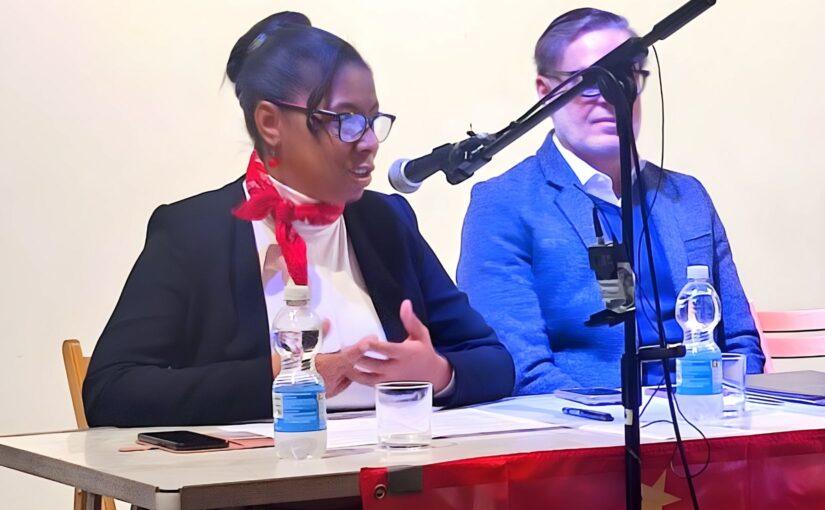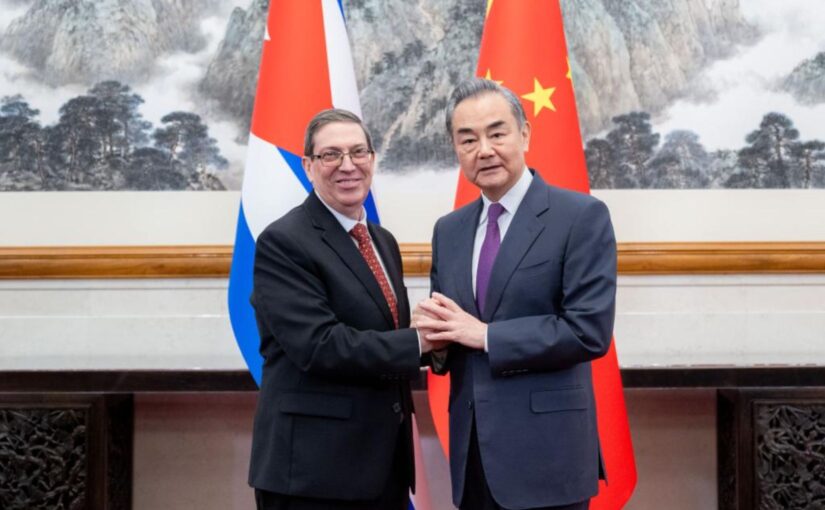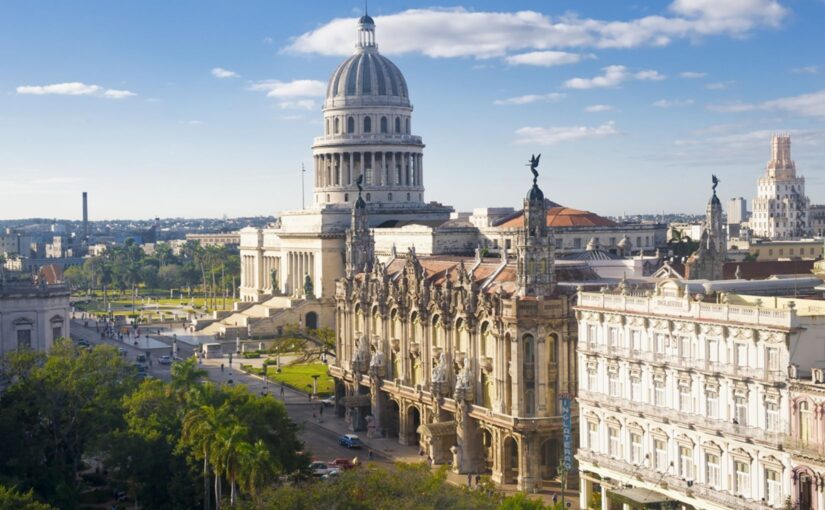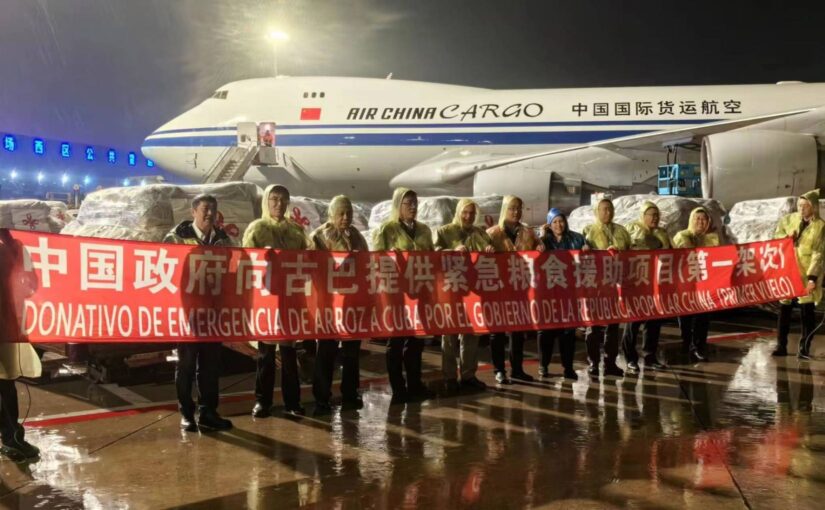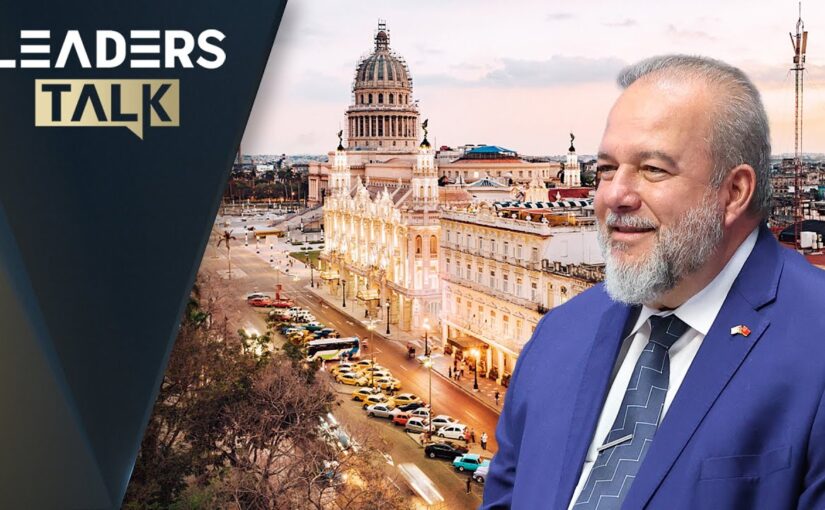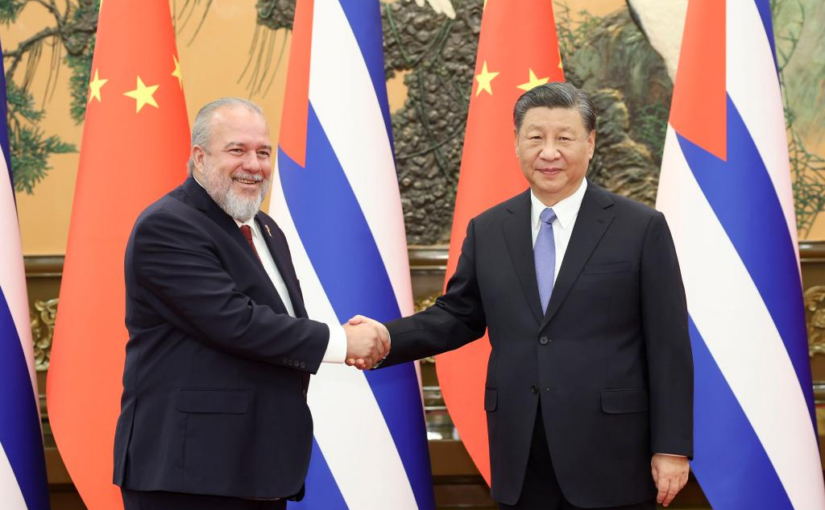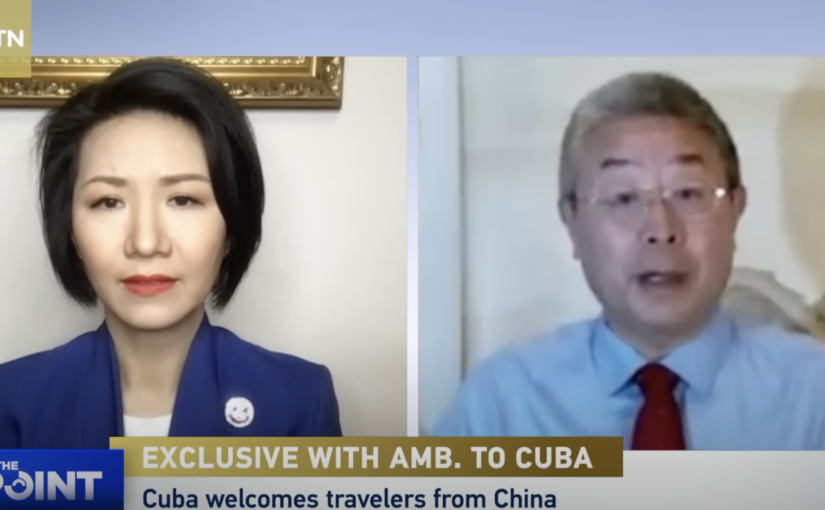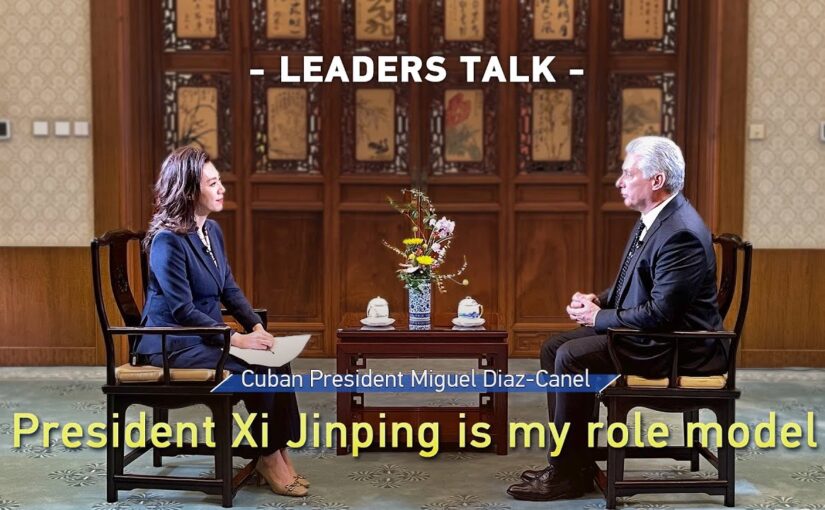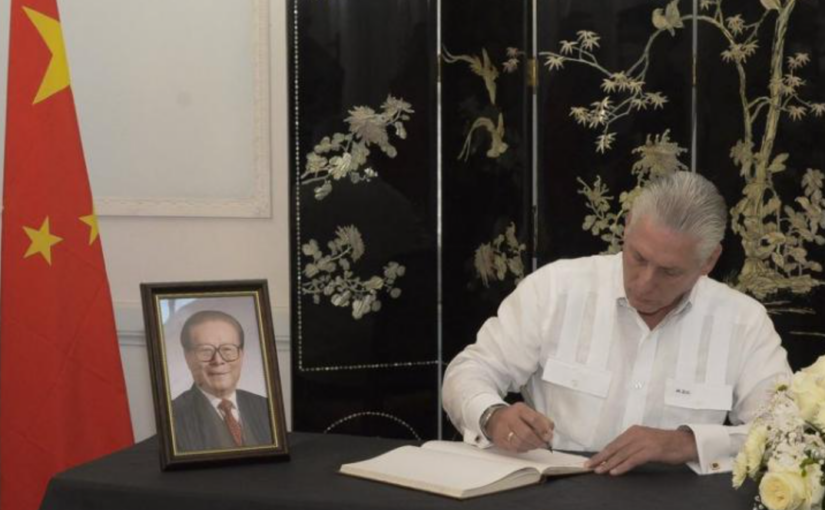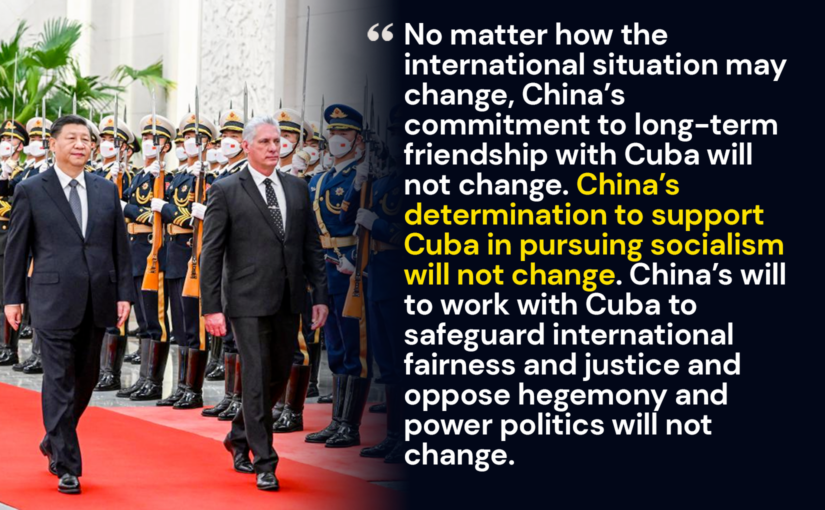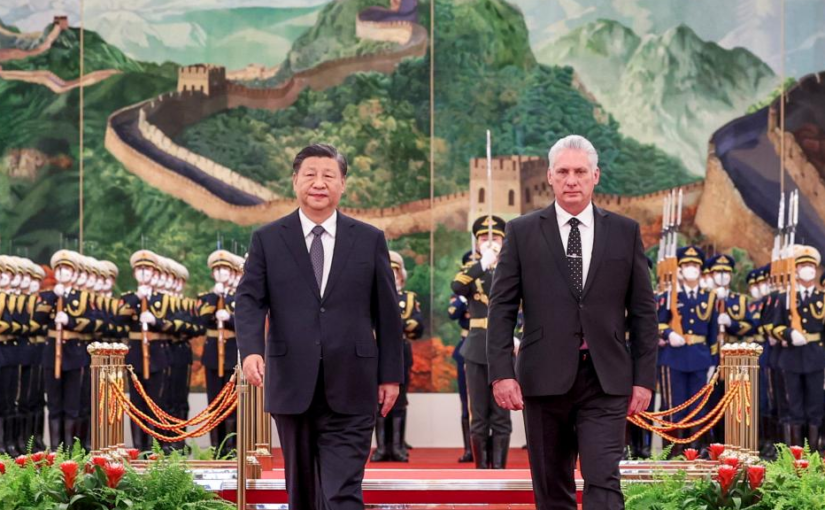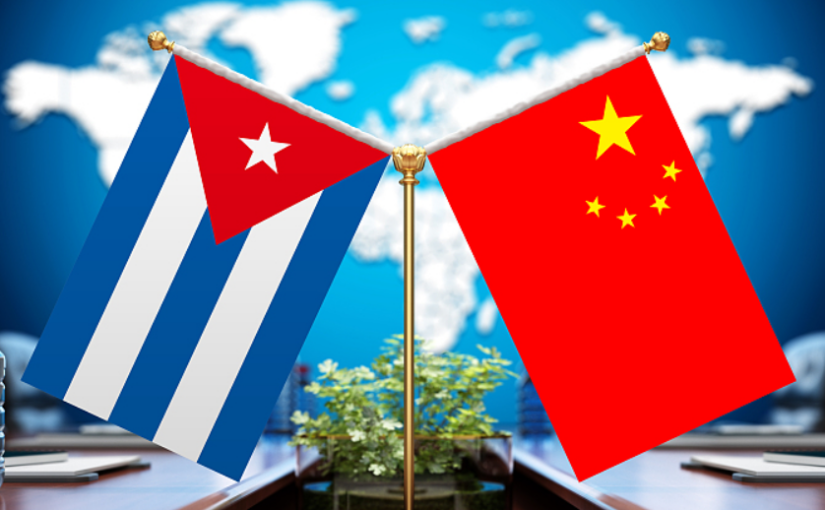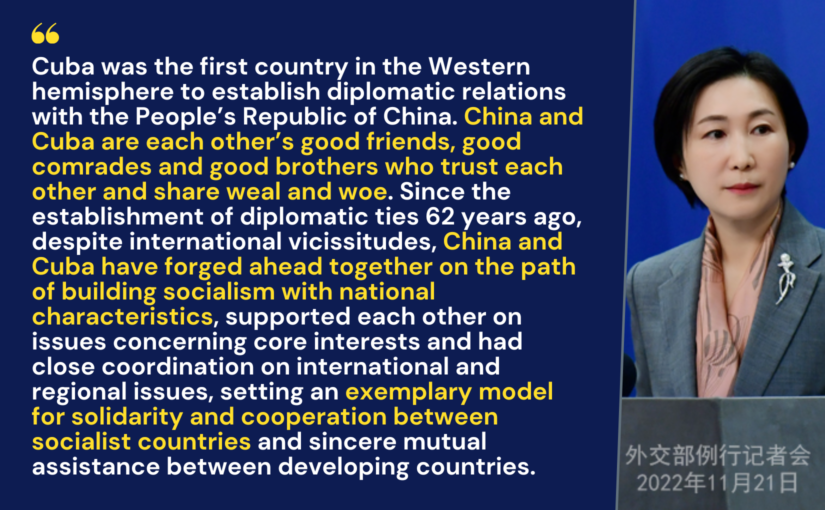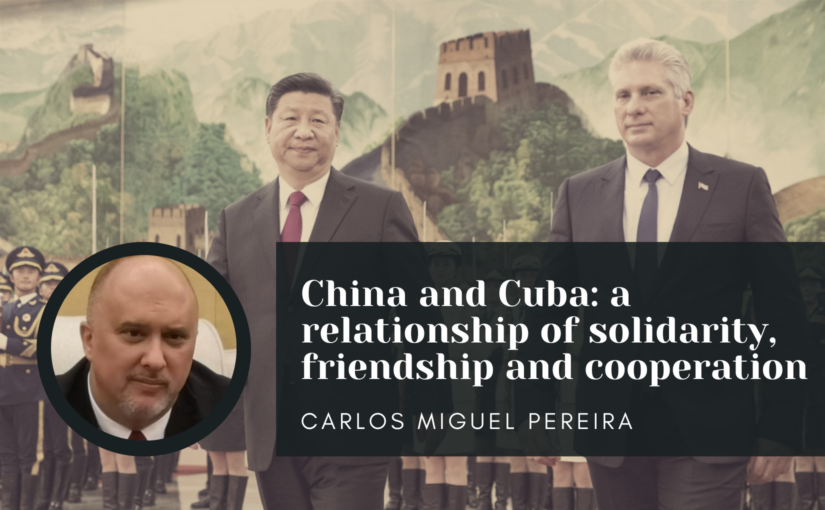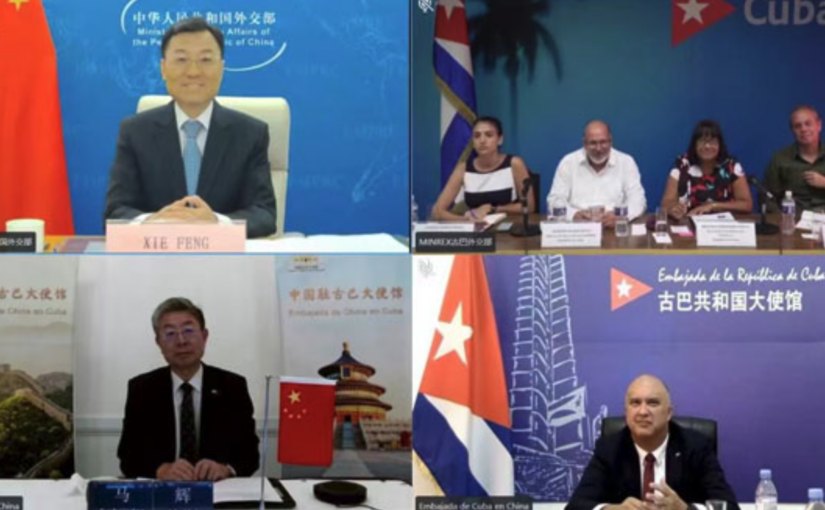We are very pleased to publish below the text of the speech given by Her Excellency Ismara M. Vargas Walter, Cuban Ambassador to the UK, at the conference held in London on Saturday 28 September to mark the 75th anniversary of the founding of the People’s Republic of China.
Comrade Vargas Walter gave an overview of the history of solidarity between China and Cuba, noting that, in 1960, Cuba became the first country in Latin America to recognise the People’s Republic of China. In recent times, “China’s support for Cuba in overcoming the devastating effects of the US blockade has been invaluable”, while “Cuba has stood with China in international forums, defending its sovereignty and promoting the vision of a multipolar world in which the nations of the global South can thrive free from the chains of imperialism”.
Vargas Walter went on to describe the emerging multipolar world order, of which China is a powerful advocate. “The struggle for multipolarity is the struggle for a world in which no single nation or bloc of nations can dictate the fate of others”.
She concluded her remarks with a powerful call for revolutionary internationalism:
The friendship between our nations is a testament to what can be achieved when we stand together in solidarity. It is a reminder that internationalism is our greatest strength, no matter how small or isolated a country may seem. Let’s continue to deepen our ties, strengthen our solidarity and continue the struggle for a world free of exploitation and imperialism.
Comrades and friends,
It is a great honour to stand before you today as we celebrate the 75th anniversary of the founding of the People’s Republic of China. We commemorate not only the rise of a great nation but also the enduring legacy of socialist internationalism of which Cuba and China have been proud torchbearers for decades.
When the People’s Republic of China was founded in 1949, it marked the triumph of the indomitable spirit of the Chinese people in their struggle for sovereignty, dignity and a future free from colonialism and imperialist domination. This victory impacted far beyond China’s borders, inspiring revolutionary movements in Asia, Africa, Latin America and beyond. It was a beacon of hope for the oppressed, demonstrating that unity, determination and a shared socialist vision can change the course of history.
In 1959, ten years after China’s victory, the Cuban Revolution triumphed under the leadership of our Commander-in-Chief Fidel Castro. Our revolution was a direct challenge to U.S. imperialism in the heart of Latin America. In 1960, Cuba became the first country in Latin America to recognize the People’s Republic of China, cementing a partnership based on revolutionary solidarity. Despite our geographical distance, Cuba and China were united in a common struggle – the struggle against exploitation, foreign domination and the capitalist system that seeks to divide and subjugate the people of the global South.
Our two nations, one in the Caribbean and the other in East Asia have shown that internationalism is not just an ideal – it is a necessity. In the face of endless provocations, economic blockades and attempts to isolate our revolutions, both Cuba and China have stood tall, defending the dignity of our people and advancing on the road to socialism.
The bonds between Cuba and China have grown stronger over the decades, nourished by mutual respect, and shared principles. Since the early days of our revolutions, China has extended a hand of friendship to Cuba. China’s support for Cuba in overcoming the devastating effects of the U.S. blockade has been invaluable. Cuba has stood with China in international forums, defending its sovereignty and promoting the vision of a multipolar world in which the nations of the global South can thrive free from the chains of imperialism.
However, despite the indomitable spirit of our people, we continue to face unjust actions aimed at undermining our sovereignty. Cuba continues to be arbitrarily listed as a state sponsor of terrorism, a designation that is not only baseless but deeply unfair. This false narrative is part of the broader strategy of imperialist aggression aimed at destabilizing and suffocating our economy. The real intention behind this label is to cause extraordinary damage to Cuba’s development, just as the criminal blockade has done for more than six decades. To be clear, this label has nothing to do with terrorism and everything to do with punishing Cuba for daring to build socialism on its own terms.
China has been a determined force in promoting global solidarity. From its Belt and Road Initiative, which strengthens economic ties and infrastructure development in the Global South, to its investments in sustainable development, China has shown that internationalism is not a relic of the past, but a living principle shaping the future.
At the heart of the struggle for a more just and equitable world is the rise of the Global South. Countries like Cuba, Venezuela and China, along with many others in Latin America, Africa, and Asia, are asserting their right to determine their own future, free from the grip of foreign interference. The struggle for multipolarity is the struggle for a world in which no single nation or bloc of nations can dictate the fate of others.
And China has been a powerful advocate of this new multipolar world order. Its policy of peaceful development and win-win cooperation stands in sharp contrast to the coercion and militarism that define imperialist relations. China’s partnerships with nations in the Global South are based on the principles of mutual respect, non-interference and solidarity – principles that Cuba wholeheartedly embraces.
As we celebrate the 75th anniversary of the founding of the People’s Republic of China, we must remember that our struggle is far from over. The forces of imperialism are relentless, but so too is our determination to defend the sovereignty of our nations, the dignity of our peoples and the road to socialism that we have chosen.
The friendship between our nations is a testament to what can be achieved when we stand together in solidarity. It is a reminder that internationalism is our greatest strength, no matter how small or isolated a country may seem. Let’s continue to deepen our ties, strengthen our solidarity and continue the struggle for a world free of exploitation and imperialism.
Until victory always!
Thank you so much.
